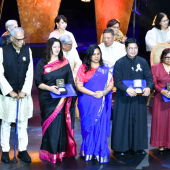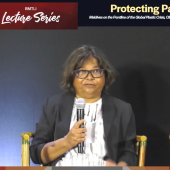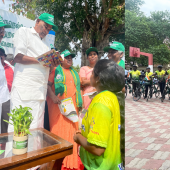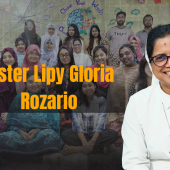Ramon Magsaysay 2025 Laureate Fr Flavie: “For Society to Heal, the Lies Must End”
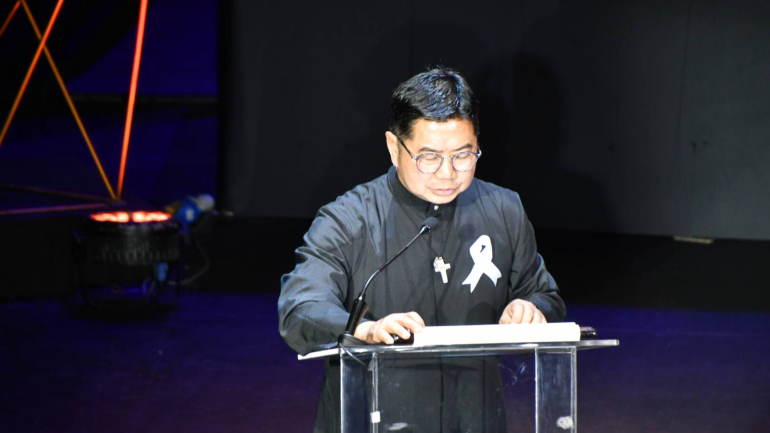
Father Flavie Villanueva, a Filipino missionary priest of the Society of the Divine Word (SVD) and one of the recipients of the 2025 Ramon Magsaysay Award, delivered a lecture on November 6 highlighting how the Arnold Janssen Kalinga Center in Manila, which he founded to provide basic necessities for people living on the streets, has become a symbol of hope, “restoring dignity and hope among the underserved.”
According to him, around 300 men and women visit the center each day for meals and the simple chance to take a bath.
Father Villanueva also spoke at length about his other major advocacy: justice and service for the victims of the war on drugs. During the six-year administration of former president Rodrigo Duterte, thousands of drug-related suspects were killed across the country, often through vigilante-style executions. With the majority of victims coming from impoverished communities, Father Villanueva noted that many of those he had been serving eventually became casualties of the drug war.
“The very people we embraced began to disappear,” he recounted. “Their bodies were found on the pavements, their names written on cardboards beside them, the cruel shorthand for judgment without trial.”
Refusing to remain silent, which he said would mean “complicity in the war on the poor,” Father Villanueva and his community created Program Paghilom (“Healing”), a ministry that provides spiritual, emotional, and financial support to those widowed, orphaned, and traumatized by the killings.
No Healing Without Truth
The Philippine government officially lists the death toll of the anti-drug campaign at 6,248 from 2016 to 2022, but human rights organizations and the International Criminal Court (ICC) estimate the number to be between 12,000 and 30,000. For Father Villanueva, true healing is impossible unless these discrepancies are confronted.
Through Program Paghilom, his team has been documenting the stories of bereaved families, alongside the efforts of lawyers and human rights advocates, to peel away the lies and reveal what really happened to the victims.
“Truth heals,” said Father Villanueva. “For families to recover, the facts must surface. The facts are far different from what the Philippine National Police have shoved down our throats with fake news and fake identities. For society to heal, the lies must end.”
He further urged the government to establish an Extrajudicial Killing Truth Commission to uncover the full scope of the killings.
“Who were the ones who killed? Who participated in the killing? Who are the people with blood on their hands? How many were killed? From there, we hope that through documentation and repentance, our nation can begin to renew itself,” he said.
Defeating Violence with Compassion
Having personally reached out to hundreds of families of drug war victims, Father Villanueva emphasized that they, too, are victims, yet, with the right support, they can become advocates for truth and “wounded healers for a wounded nation.”
He called on everyone, even those not directly affected by the drug war, to practice radical compassion in their daily lives.
“Radical compassion is not charity. It is courage. It is the audacity to believe that love can still redeem what violence has broken,” he said.
Father Villanueva reminded Christians that daily acts of kindness must be at the heart of their faith, because “Jesus Himself lived that way.”
“God dwells among the wounded. The Word who became flesh did not come to the tidy and the safe. He came to the streets, to the broken bodies, to those the world calls unworthy,” he said.
“Each time we wash a homeless man, bury an abandoned dead, listen to a mother’s grief, or stand for justice, the environment, and equality in education, the Gospel takes flesh.”
Radio Veritas Asia (RVA), a media platform of the Catholic Church, aims to share Christ. RVA started in 1969 as a continental Catholic radio station to serve Asian countries in their respective local language, thus earning the tag “the Voice of Asian Christianity.” Responding to the emerging context, RVA embraced media platforms to connect with the global Asian audience via its 21 language websites and various social media platforms.








